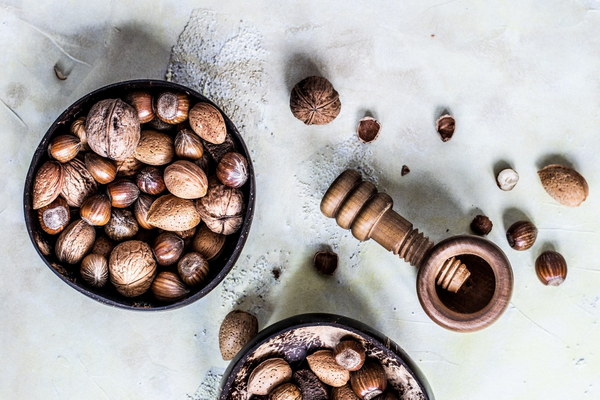Does Cyperus Rotundus Xiangfu Nourish the Spleen Exploring Traditional Chinese Medicines Perspective
Cyperus rotundus, commonly known as xiangfu in Traditional Chinese Medicine (TCM), has been a staple in Chinese herbal treatments for centuries. Known for its numerous health benefits, xiangfu has been widely used to treat various conditions, including digestive disorders. One of the most frequently asked questions regarding xiangfu is whether it nourishes the spleen. This article delves into the traditional understanding of xiangfu's effects on the spleen and its potential role in improving gastrointestinal health.
In TCM, the spleen plays a crucial role in maintaining the body's overall health, particularly in relation to digestion. The spleen is responsible for transforming and transporting nutrients from the food we consume, ensuring that the body receives the necessary energy and nutrients to function optimally. When the spleen is weakened or imbalanced, it can lead to various digestive problems, such as bloating, constipation, and diarrhea.

Cyperus rotundus is believed to have a significant impact on the spleen's function, primarily by nourishing and strengthening it. This concept is rooted in the TCM theory that certain herbs possess specific properties that can either reinforce or regulate the organs. In the case of xiangfu, its properties are considered to be warming, bitter, and slightly sweet, making it suitable for nourishing the spleen and promoting digestion.
One of the primary ways xiangfu is thought to nourish the spleen is by promoting the circulation of qi (vital energy) and blood. In TCM, poor circulation of qi and blood can lead to spleen weakness, resulting in digestive issues. By enhancing circulation, xiangfu is believed to help alleviate symptoms such as bloating, pain, and discomfort in the abdomen, as well as improve overall digestive function.
Another mechanism by which xiangfu may nourish the spleen is through its ability to reduce dampness. Dampness is a TCM concept that refers to the accumulation of fluid in the body, which can lead to various health problems, including digestive disorders. Xiangfu is considered a dampness-dispelling herb, which means it can help eliminate excess moisture and promote a healthy spleen function.
Numerous clinical studies have been conducted to evaluate the efficacy of xiangfu in treating digestive disorders. While some studies have shown promising results, it's essential to note that research in TCM is still in its early stages. One study published in the Journal of Ethnopharmacology found that xiangfu extract significantly improved symptoms of dyspepsia (indigestion) in patients with spleen and stomach weakness.
It's important to mention that while xiangfu may be beneficial for spleen health and digestion, it may not be suitable for everyone. TCM is a personalized approach to medicine, and it's crucial to consult with a qualified TCM practitioner before starting any treatment. They can assess your specific condition and determine whether xiangfu is appropriate for you.
In conclusion, xiangfu, a traditional Chinese herb, is believed to nourish the spleen and improve digestion. Its properties, such as promoting qi and blood circulation and reducing dampness, contribute to its potential benefits in treating various digestive disorders. While further research is needed to fully understand the mechanisms behind xiangfu's effects, it remains a valuable component of TCM for those seeking natural remedies for spleen and digestive health.









